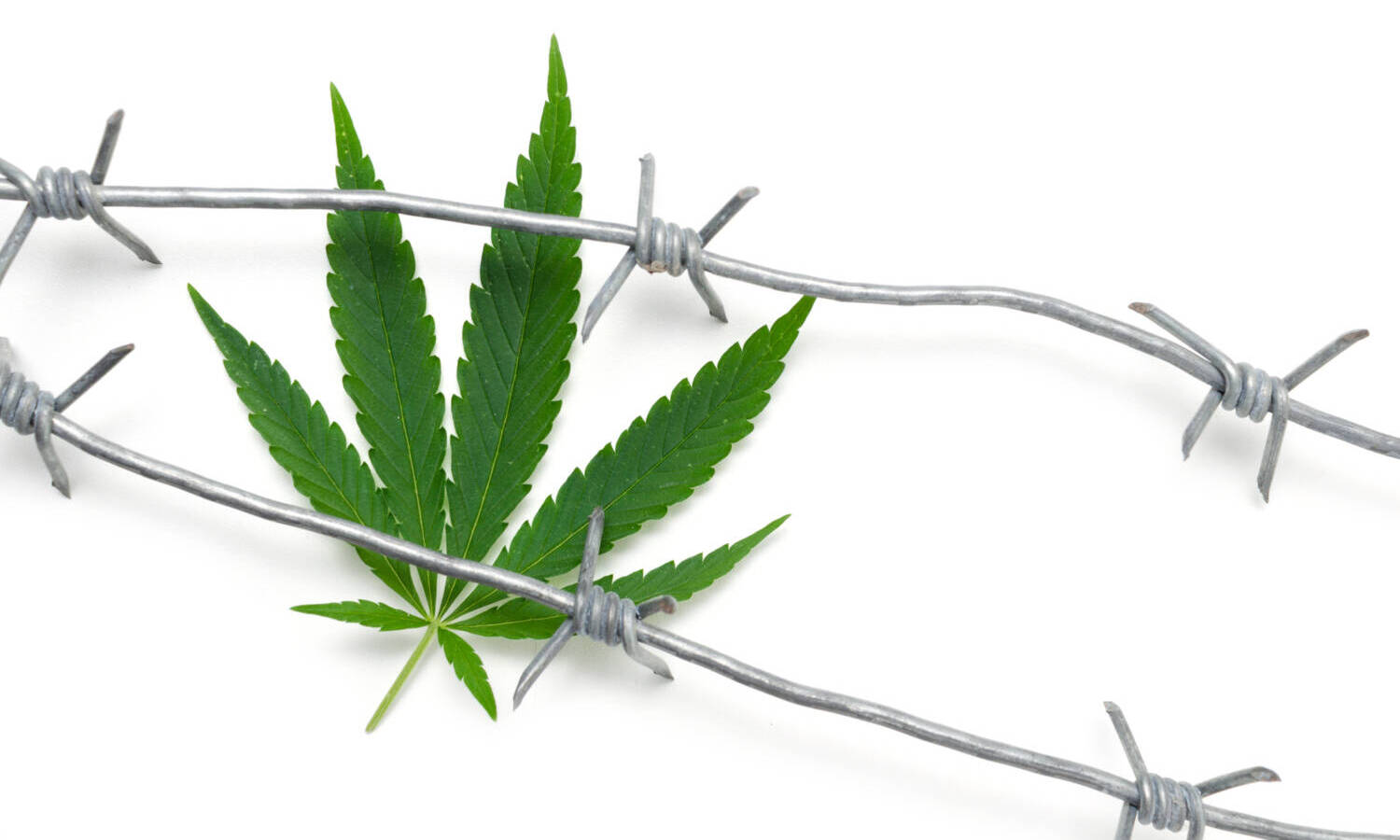Under the federal sentencing guidelines, the term “trafficking” is one that applies to situations that many people might view as possession.
This article originally appeared on Cannabis.net and has been reposted with permission.
For those who have been reading my work for the past couple of years, I have always held the position that prohibition is a terrible government policy. I mean, if it didn’t work for God in the Garden of Eden, then why do we think it would work for man?
Nonetheless, it’s something that we’re still contending with today despite the fact that 37 states have legalized cannabis in some form at the time of writing this article.
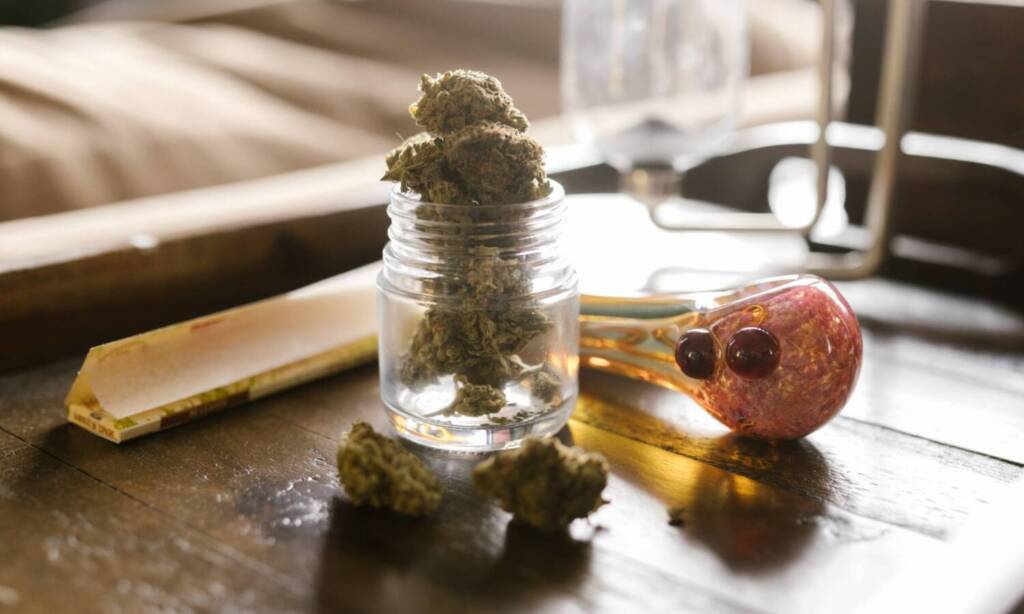
However, I have recently come to the conclusion that the Controlled Substance Act is not only a policy of prohibition of drugs, but rather the control and enslavement of people. This is due to a little thing known as the 13th Amendment which clearly states:
Section 1
Neither slavery nor involuntary servitude, except as a punishment for crime whereof the party shall have been duly convicted, shall exist within the United States, or any place subject to their jurisdiction.
Perhaps the CSA wasn’t originally drafted as a means of turning free citizens into slaves. This may not have been its initial purpose, but in application, this is exactly what it had become. Currently the Controlled Substance Act functions as a means for the pharmaceutical industry to maintain a monopoly on all drugs.
However, the fact of the matter that the prohibition of drugs makes all drug users essentially criminals mean that the policy that is meant to “protect the people from drugs” is actually an excuse to turn people into slaves — at least in a legal and constitutional sense.
When we look at the history of incarceration, this seems to corroborate the idea. According to Drug Policy Facts:
Forty-six percent of prisoners sentenced to federal prison were serving time for a drug offense (more than 99% for drug trafficking) on September 30, 2019, the most recent date for which such data are available.
This is in relation to federal prison statistics. When it comes to State prison statistics:
The US Dept. of Justice’s Bureau of Justice Statistics reports that at yearend 2018 there were 1,249,700 sentenced people in state prisons in the US, of whom 176,300 (14.1%) had as their most serious offense a drug charge: 46,500 for drug possession (3.7%) and 129,900 for “other” drug offenses, including manufacturing and sale (10.4%).
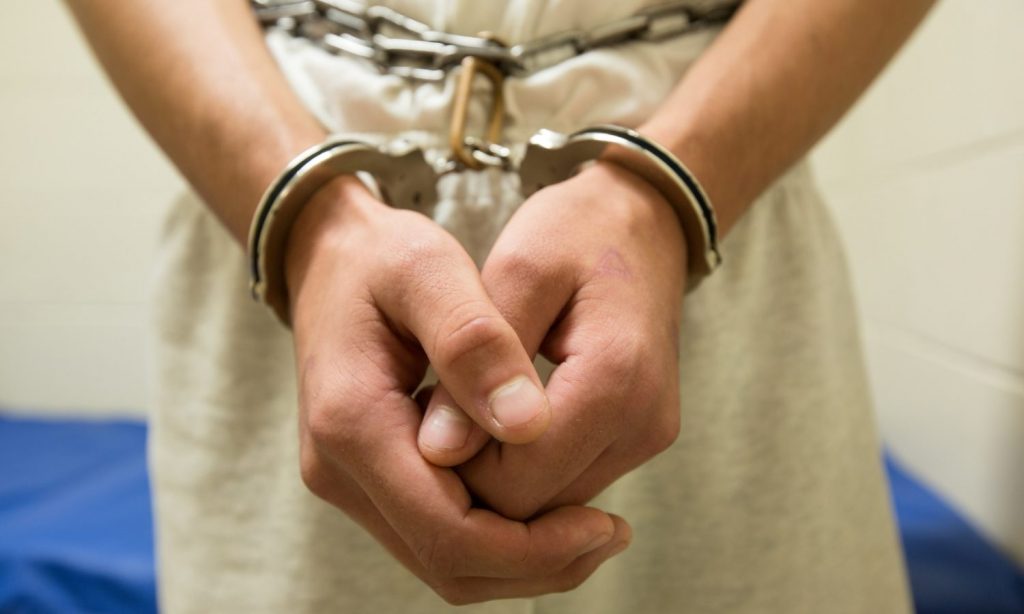
These people, some of them “drug traffickers,” meaning they have been legally turned into a slave according to the US Constitution. Surely, some of you might think that drug traffickers should be in jail. Except, according to the federal government, drug trafficking can be anything from simple possession as CriminalDefenseLawyer.com explains:
Under the federal statutes, the term “trafficking” has a specific meaning, one that is substantially different than the term’s common usage. A person commits the crime of drug trafficking when manufacturing, distributing, dispensing, or possessing with the intent to manufacture, distribute, or dispense any amount of a prohibited narcotic.
In other words, under the federal sentencing guidelines, the term “trafficking” is one that applies to situations that many people might view as possession.
(21 U.S.C. section 841)
Why don’t they call it mere possession? Simple. People would be outraged over a 15 year prison sentence for mere possession, but call it drug trafficking and those bastards can rot in a cell! Language is a powerful tool when wielded with malice.
“But prisoners aren’t slaves!,” you may be saying. While this is technically true, there is no legal mechanism in place where you can force an inmate to work; prisons can coerce prisoners to do labor for pennies on the hour.
From Don Williams, Quora:
Prisoners are not “forced to work” per say, they are given an incentive to go to work.
When you get to prison (in Arkansas anyway) you are considered Class II. You will be given a job on the ‘Hoe Squad’ and are expected to do that job for 2 months before you are granted Class I.
If you choose to not go to work you will be busted down to Class III and given some restrictions; no phone or store.
If you continue to not go to work you will be busted down to Class IV where you get no privileges at all; no store, phone or visits. You also do not generate any good time at Class IV.
So, if you want to flatten your time, (or you have a life sentence with no family to come see you or put money on your books) then not going to work isn’t an issue.
Most inmates do go to work so they can get out of prison sooner rather than later.
Going to work also has the advantage of making your time go by faster because you are constantly busy. If you are just sitting on your ass in the barracks, your time will creep by. So, going to work makes life in prison a little bit easier to cope with.
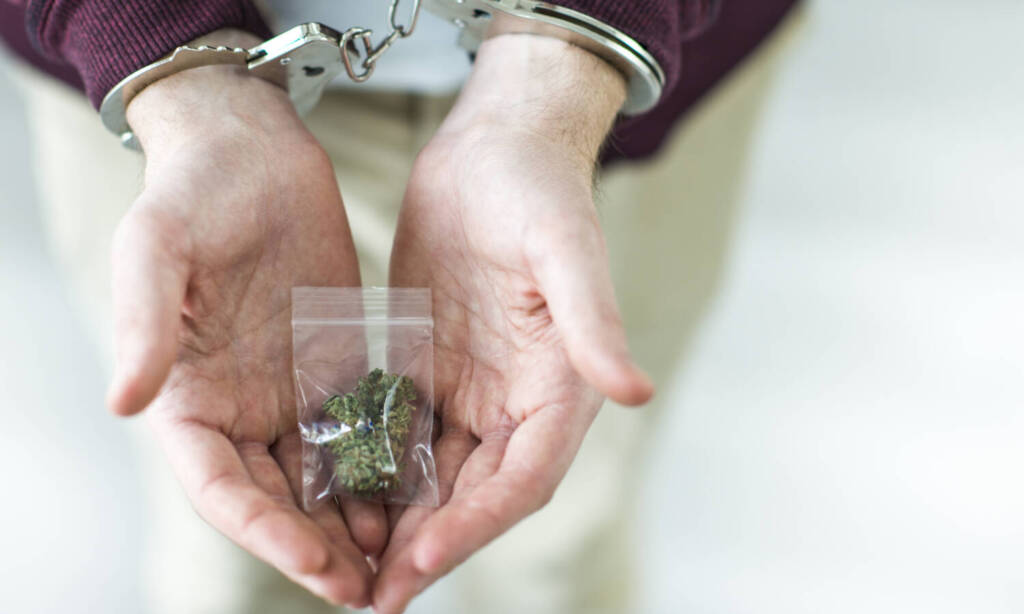
Of course, from a prisoner’s perspective, work most definitely has its advantages as explained by Don. However, what does work entail? In Arkansas that would be a minimum of $0.0 per hour with a maximum of $0.0 per day, according to PrisonPolicy.org
The same brief highlighted the following:
The average of the minimum daily wages paid to incarcerated workers for non-industry prison jobs is now 86 cents, down from 93 cents reported in 2001. The average maximum daily wage for the same prison jobs has declined more significantly, from $4.73 in 2001 to $3.45 today.
This means that despite the beneficial incentives for prisoners to get to work, the government, and in many cases private institutions utilize this labor to make goods, which they sell to government agencies. In fact, according to Corporate Accountability Lab, there are over 4100 corporations that profit from mass incarceration.
Around 63,000 inmates produce goods for external sale. Some of these goods are destined for government agencies, and some for the private market. Prison industries jobs range from farm work and manufacturing to call center and distribution services. Every state, except for Alaska, has a state-governed prison industries initiative, and the federal government runs a separate program, Federal Prison Industries (trading as UNICOR).
And this is where it all comes together, how many prisoners are incentivized to work for mere pennies per day due to drug trafficking aka possession charges? While this system is not technically or legally “slavery,” within all standards of ethics, it is.
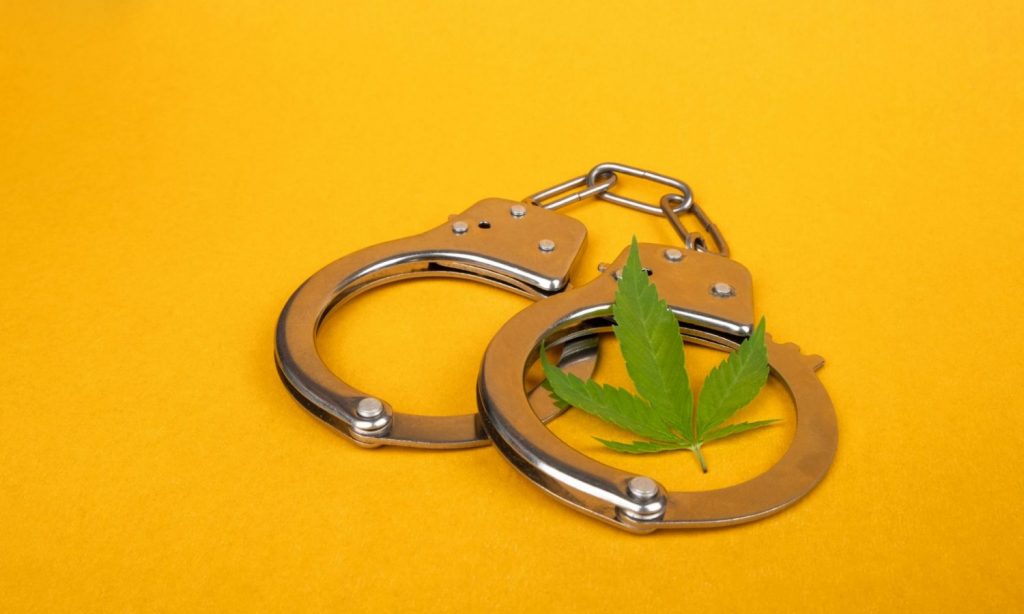
Therefore, I conclude that the Controlled Substance Act — a document that prohibits people from “holding a substance on their person”, which they would consume exercising the full autonomy of their body — is a legal mechanism to turn the average Jane and Joe into state or federally owned slaves.
RELATED: Cannabis Equity And The Promise Of Reparations For The War On Drugs
The only sane thing we can do as a civilized society is to abolish this slavers agreement once and for all and rethink how we deal with the relationship between people and drugs. It’s been more than 50 years of the Nixon inspired War on Drugs where a hardline of prohibition has led all policy decisions.
Perhaps, it’s time to accept that, “We the People” like to get a bit crunked-up every now and then and that it’s completely okay. It’s much more effective to control the drugs than it is to prohibit them. And if you tax recreational drug use like any other recreational substance, the problem would essentially fund the only solution that would have ever worked — education, harm reduction, supply chain management, purity controls.
This article originally appeared on Cannabis.net and has been reposted with permission.

